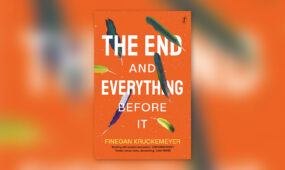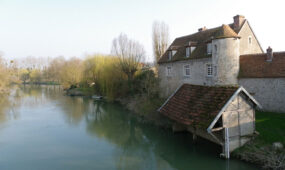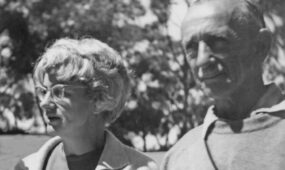Pulitzer Prize-winning poet Mary Oliver dies
Books & Poetry
Mary Oliver, the poet who asked “what is it you plan to do / with your one wild and precious life,” has died .

The Pulitzer Prize-winning poet whose rapturous odes to nature and animal life brought her critical acclaim and popular affection was 83.
Bill Reichblum, Oliver’s literary executor, said she died on Thursday at her home in Hobe Sound, Florida. The cause of death was lymphoma.
“Thank you, Mary Oliver, for giving so many of us words to live by,” Hillary Clinton wrote in a tweet.
Ava DuVernay quoted from Oliver’s poem ‘Praying’ and fans online shared their favourite lines, such as “tell me, what is it you plan to do with your one wild and precious life?”
Author of more than 15 poetry and essay collections, Oliver wrote brief, direct pieces that sang of her worship of the outdoors and disdain for greed, despoilment and other human crimes.
One of her favourite adjectives was “perfect,” and rarely did she apply it to people. Her muses were owls and butterflies, frogs and geese, the changes of the seasons, the sun and the stars.
“In my outward appearance and life habits I hardly change – there’s never been a day that my friends haven’t been able to say, and at a distance, ‘There’s Oliver, still standing around in the weeds. There she is, still scribbling in her notebook,”‘ Oliver wrote in Long Life, a book of essays published in 2004.
“But, at the center: I am shaking; I am flashing like tinsel.”
Like her hero Walt Whitman, whom she would call the brother she never had, Oliver didn’t only observe mushrooms growing in a rainstorm or an owl calling from a black branch; she longed to know and become one with what she saw.
She might be awed by the singing of goldfinches or, as in the poem ‘White Flowers’, overcome by a long nap in a field.
Her poetry books included White Pine, West Wind and the anthology Devotions, which came out in 2017. She won the Pulitzer in 1984 for American Primitive and the National Book Award in 1992 for New and Selected Poems.
Her fans ranged from fellow poets Stanley Kunitz and Rita Dove to Hillary Clinton and Laura Bush.
“Although few poets have fewer human beings in their poems than Mary Oliver, it is ironic that few poets also go so far to help us forward,” Stephen Dobyns wrote of her in The New York Times.
Oliver was a native of suburban Cleveland, and endured what she called a “dysfunctional” family in part by writing poems and building huts of sticks and grass in the nearby woods.
Edna St Vincent Millay was an early influence and, while in high school, Oliver wrote to the late poet’s sister, Norma, asking if she could visit Millay’s house in Austerlitz, New York.

Get InReview in your inbox – free each Saturday. Local arts and culture – covered.
Thanks for signing up to the InReview newsletter.
Norma Millay agreed and Oliver ended up spending several years there, organising Edna St Vincent Millay’s papers.
While in Austerlitz, she also met the photographer Molly Malone Cook – “I took one look and fell, hook and tumble,” Oliver later wrote – and the two were partners until Cook’s death, in 2005. Much of Oliver’s work was dedicated to Cook.
Oliver rarely spoke to the press, but told Maria Shriver during a 2011 interview for Oprah Winfrey’s O magazine that she wasn’t very hopeful about the planet.
“I think when we lose the connection with the natural world, we tend to forget that we’re animals, that we need the Earth,” she said.
“If I have any lasting worth, it will be because I have tried to make people remember what the Earth is meant to look like.”
– AP
Support local arts journalism
Your support will help us continue the important work of InReview in publishing free professional journalism that celebrates, interrogates and amplifies arts and culture in South Australia.
Donate Here





Comments
Show comments Hide comments